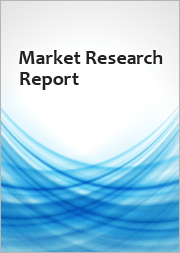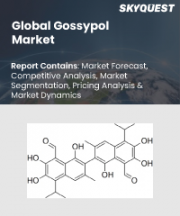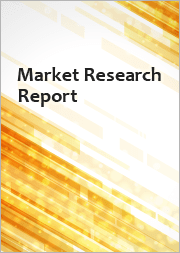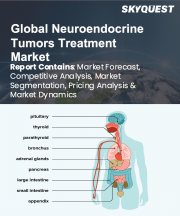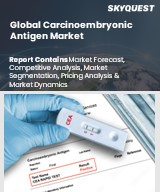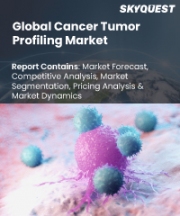
|
시장보고서
상품코드
1759275
데스모이드 종양 시장 : 지역 및 국가별 분석과 예측(2025-2035년)Desmoid Tumors Market - A Global and Regional Analysis: Focus on Country and Region - Analysis and Forecast, 2025-2035 |
||||||
데스모이드 종양 시장의 주요 성장 요인 중 하나는 표적 치료의 발전입니다.
데스모이드 종양의 분자적, 유전적 요인이 밝혀짐에 따라, 기업들은 EZH2 억제제인 Tazemetostat(EPZ-6438), Notch 신호전달 경로를 표적으로 하는 AL102 등 종양 성장에 관여하는 특정 경로를 표적으로 하는 보다 정확하고 맞춤화된 치료법을 개발하고 있습니다. 개발하고 있습니다. 이러한 치료법은 기존 화학요법에 비해 부작용이 적고 높은 효과를 기대할 수 있어 환자와 의료진에게 매우 매력적인 선택지가 되고 있습니다.
또한, 희귀질환에 대한 규제 당국의 지원도 시장 성장을 가속하고 있습니다. 희귀질환 치료제 지정 및 신속 승인 제도와 같은 규제 혜택은 새로운 치료법 개발을 촉진하여 시장 성장을 더욱 가속화하고 있습니다. 보다 효과적인 표적치료제의 보급으로 환자들은 조기 진단과 전문적인 치료를 받으려는 경향이 높아지면서 치료 수요도 증가하고 있습니다. 데스모이드 종양에 대한 인식이 높아지고 개인 맞춤형 의료가 발전함에 따라 시장은 앞으로도 성장세를 유지할 것으로 예상되며, 희귀하고 어려운 질환을 앓고 있는 환자들에게 희망을 줄 것으로 기대됩니다.
한편, 몇 가지 과제가 존재하여 성장을 저해하고 있습니다. Tazemetostat(EPZ-6438), AL102와 같은 약물로 어느 정도 진전이 있었지만, 많은 환자들이 여전히 적응증을 벗어난 약물이나 수술, 방사선 치료와 같은 침습적 치료법에 의존하고 있습니다. 침습적 치료에 의존하고 있는 실정입니다. 승인된 표준 치료제의 부족으로 인해, 특히 임상시험이나 전문 의료 서비스 접근이 어려운 지역에서는 효과적이고 맞춤 치료를 받을 수 있는 기회가 제한되어 있습니다.
또 다른 큰 문제는 데스모이드 종양의 높은 재발률입니다. 수술이나 방사선 치료로 종양을 일시적으로 제거해도 재발하는 경우가 많으며, 경우에 따라서는 더 공격적인 형태로 재발하는 경우도 있습니다. 이러한 예측하기 어려운 재발 경향으로 인해 장기적인 관리가 어려워지고, 환자는 반복적인 치료를 받아야 하며, 신체적, 정신적으로 큰 부담을 안게 됩니다.
또한, 이 질환의 희귀성과 복잡성으로 인해 진단과 치료가 더욱 어려워지고 있습니다. 특히 초기 단계에서는 많은 의사들이 데스모이드 종양에 대한 지식이 부족하여 진단이 늦어지거나 치료에 대한 불안감이 생길 수 있습니다. 일반인 및 의료진들 사이에서도 충분한 인식이 이루어지지 않아 조기 개입의 기회를 제한하고 있습니다.
마지막으로, 새로운 치료제의 비용과 접근성 문제도 장벽으로 작용하는데, 타제메토스타트와 같은 표적 치료제는 매우 고가이며, 지속적인 치료와 임상시험에 참여하는 데 드는 비용은 충분한 보험이나 재정적 지원이 없는 환자들에게 큰 부담이 될 수 있습니다.
세계의 데스모이드 종양(Desmoid Tumor) 시장을 조사했으며, 주요 동향, 시장 영향요인 분석, 법 및 규제 환경, 임상시험 동향, 시장 규모 추이 및 예측, 각종 부문별/지역별/주요 국가별 상세 분석, 경쟁 구도, 주요 기업 개요 등의 정보를 정리하여 전해드립니다.
목차
주요 요약
제1장 세계의 데스모이드 종양 시장 : 업계 전망
- 시장 동향
- 규제 프레임워크
- 역학 분석
- 임상시험 분석
- 시장 역학
- 영향 분석
- 시장 성장 촉진요인
- 시장이 해결해야 할 과제
- 시장 기회
제2장 세계의 데스모이드 종양 시장 : 지역별
- 북미
- 주요 조사 결과
- 시장 역학
- 시장 규모와 예측
- 유럽
- 주요 조사 결과
- 시장 역학
- 시장 규모와 예측
- 아시아태평양
- 주요 조사 결과
- 시장 역학
- 시장 규모와 예측
제3장 세계의 데스모이드 종양 시장 : 경쟁 구도와 기업 개요
- 주요 전략과 전개
- 인수합병(M&A)
- 시너지 활동
- 사업 확대와 자금조달
- 제품 발매와 승인
- 기타 활동
- 기업 개요
- SpringWorks Therapeutics
- Ayala Pharmaceuticals
- Puma Biotechnology
- Bristol-Myers Squibb
- Eli Lilly and Company
- Ipsen
- Deciphera Pharmaceuticals
제4장 조사 방법
LSH 25.07.04Global Desmoid Tumors Market, Analysis and Forecast: 2025-2035
Desmoid Tumors are non-cancerous (benign) fibrous growths that arise from connective tissue, often in the muscles, tendons, or abdominal wall. Despite being benign, they can be locally aggressive, meaning they may grow and invade nearby tissues, causing significant health issues. These tumors are characterized by the abnormal growth of fibroblasts, the cells that produce collagen, which leads to the formation of dense, fibrous masses.
Desmoid tumors are rare and account for less than 3% of all soft tissue tumors. They can develop in any part of the body but are most found in the abdomen, muscles, and limbs. Although they do not metastasize (spread to other parts of the body), their growth can cause pain, discomfort, and, in some cases, can impact the function of nearby organs or muscles.
The exact cause of Desmoid Tumors is not fully understood, but they are often associated with genetic mutations, especially in the APC gene that is involved in regulating cell growth. They are also more commonly found in individuals with Familial Adenomatous Polyposis (FAP), a hereditary condition that increases the risk of various tumors.
Symptoms of Desmoid Tumors vary depending on their size and location and can include pain, swelling, or restricted movement. Treatment options include surgery, radiation therapy, and targeted drug therapies, with the goal of controlling tumor growth and preventing recurrence, as these tumors often have high recurrence rates.
One of the key drivers of the Desmoid Tumors market is the advancement of targeted therapies. As the understanding of the molecular and genetic drivers of Desmoid Tumors improves, companies are developing more precise, personalized treatments that target the specific pathways involved in tumor growth, such as EZH2 inhibition with drugs like Tazemetostat (EPZ-6438) and Notch signaling with therapies like AL102. These treatments offer the potential for greater efficacy with fewer side effects compared to traditional approaches like chemotherapy, making them a highly attractive option for patients and healthcare providers alike.
Additionally, regulatory support for rare diseases, such as Orphan Drug Designation and accelerated approval processes, is encouraging the development of new therapies, further propelling Desmoid tumors market growth. As more effective, targeted treatment options become available, patients are more likely to seek early diagnosis and specialized care, increasing the demand for these therapies. Combined with the growing awareness of Desmoid Tumors and the rise in personalized medicine, the Desmoid Tumors market is expected to continue its growth trajectory, offering hope to patients with this rare and challenging condition.
Despite the growth of the Desmoid Tumors market, several challenges continue to hinder its progress. One of the primary challenges is the limited number of FDA-approved treatments specifically for Desmoid Tumors. While there has been progress with drugs like Tazemetostat (EPZ-6438) and AL102, the treatment landscape remains relatively underdeveloped, as many patients still rely on off-label medications or invasive treatments like surgery or radiation therapy. This lack of approved, standardized therapies means that many patients may not have access to effective, tailored treatments, especially in areas where clinical trials or specialized care are not readily available.
Another significant challenge is the high recurrence rate of Desmoid Tumors. Even after surgical removal or radiation therapy, Desmoid Tumors often return, sometimes in a more aggressive form. This unpredictability makes long-term management difficult and can lead to repeated treatments, causing both physical and emotional strain on patients.
Additionally, the rarity of the condition and its complex nature can make diagnosis and treatment challenging for healthcare providers. Many doctors may be unfamiliar with Desmoid Tumors, especially in the early stages, leading to potential delays in diagnosis and a lack of confidence in managing the disease. This is compounded by insufficient awareness among the general public and healthcare professionals, which further limits early intervention opportunities.
Finally, cost and accessibility of emerging treatments are also obstacles. Targeted therapies like Tazemetostat are expensive, and the costs associated with ongoing treatment, including clinical trial participation, may be prohibitive for some patients, particularly those without adequate insurance coverage or financial support.
These challenges present significant barriers to the Desmoid tumors market's full growth potential, requiring continued research, regulatory support, and advancements in treatment options to overcome them.
The global Desmoid Tumors market is highly competitive, with several leading companies driving innovation and market growth, such as SpringWorks Therapeutics, Ayala Pharmaceuticals, Ipsen, Deciphera Pharmaceuticals, and Bristol-Myers Squibb. These companies are at the forefront of developing novel therapies to address the unmet needs of patients with this rare condition. SpringWorks Therapeutics is advancing Tazemetostat (EPZ-6438), an EZH2 inhibitor, which is showing promise in treating Desmoid Tumors by targeting the molecular pathways that drive tumor growth. Similarly, Ayala Pharmaceuticals is focusing on AL102, a gamma-secretase inhibitor that targets the Notch signaling pathway, a key driver in Desmoid Tumor formation. Ipsen is investigating Cabometyx (cabozantinib), a multi-kinase inhibitor, for its potential to treat Desmoid Tumors, while Deciphera Pharmaceuticals is developing Ripretinib, a kinase inhibitor that targets resistant tumors. Additionally, Bristol-Myers Squibb is exploring the use of Opdivo (nivolumab), an immune checkpoint inhibitor, for Desmoid Tumors, aiming to harness the power of immunotherapy. These innovations are paving the way for more targeted, effective treatments that offer hope for better management and outcomes for patients with Desmoid Tumors.
Desmoid Tumors Market Segmentation:
Segmentation 1: by Region
- North America
- Europe
- Asia-Pacific
The global Desmoid Tumors market is undergoing significant transformation, fueled by emerging trends that are reshaping the treatment landscape and expanding patient access. One key trend is the advancement of targeted therapies, such as Tazemetostat (EPZ-6438) and AL102, which focus on specific molecular pathways like EZH2 inhibition and Notch signaling. These therapies offer a more precise approach to treating Desmoid Tumors, reducing the side effects typically associated with traditional treatments like chemotherapy. Additionally, personalized medicine is gaining momentum, with therapies being tailored to the unique genetic profiles of patients, improving treatment efficacy and minimizing adverse effects.
Another important trend is the increased participation in clinical trials. As awareness of Desmoid Tumors grows, more patients are enrolling in clinical trials, which accelerates the development and approval of new therapies. Regulatory support, such as Orphan Drug Designation, is also fueling Desmoid tumors market growth by providing incentives for companies to develop treatments for rare diseases like Desmoid Tumors.
The rise of digital health tools and telemedicine is further transforming the landscape, making treatment and monitoring more accessible, especially in underserved areas. These technologies are improving patient engagement and allowing for more efficient management of the condition. Overall, these emerging trends are driving the growth of the Desmoid Tumors market, improving outcomes for patients, and providing new opportunities for pharmaceutical companies and researchers to address this rare and complex disease.
Table of Contents
Executive Summary
Scope and Definition
Market/Product Definition
Inclusion and Exclusion
Key Questions Answered
Analysis and Forecast Note
1. Global Desmoid Tumors Market: Industry Outlook
- 1.1 Introduction
- 1.2 Market Trends
- 1.3 Regulatory Framework
- 1.4 Epidemiology Analysis
- 1.5 Clinical Trial Analysis
- 1.6 Market Dynamics
- 1.6.1 Impact Analysis
- 1.6.2 Market Drivers
- 1.6.3 Market Challenges
- 1.6.4 Market Opportunities
2. Global Desmoid Tumors Market (Region), ($Billion), 2023-2035
- 2.1 North America
- 2.1.1 Key Findings
- 2.1.2 Market Dynamics
- 2.1.3 Market Sizing and Forecast
- 2.1.3.1 North America Desmoid Tumors Market, by Country
- 2.1.3.1.1 U.S.
- 2.1.3.1 North America Desmoid Tumors Market, by Country
- 2.2 Europe
- 2.2.1 Key Findings
- 2.2.2 Market Dynamics
- 2.2.3 Market Sizing and Forecast
- 2.2.3.1 Europe Desmoid Tumors Market, by Country
- 2.2.3.1.1 Germany
- 2.2.3.1.2 U.K.
- 2.2.3.1.3 France
- 2.2.3.1.4 Italy
- 2.2.3.1 Europe Desmoid Tumors Market, by Country
- 2.3 Asia Pacific
- 2.3.1 Key Findings
- 2.3.2 Market Dynamics
- 2.3.3 Market Sizing and Forecast
- 2.3.3.1 Asia Pacific Desmoid Tumors Market, by Country
- 2.3.3.1.1 China
- 2.3.3.1.2 Japan
- 2.3.3.1 Asia Pacific Desmoid Tumors Market, by Country
3. Global Desmoid Tumors Market: Competitive Landscape and Company Profiles
- 3.1 Key Strategies and Development
- 3.1.1 Mergers and Acquisitions
- 3.1.2 Synergistic Activities
- 3.1.3 Business Expansions and Funding
- 3.1.4 Product Launches and Approvals
- 3.1.5 Other Activities
- 3.2 Company Profiles
- 3.2.1 SpringWorks Therapeutics
- 3.2.1.1 Overview
- 3.2.1.2 Top Products / Product Portfolio
- 3.2.1.3 Top Competitors
- 3.2.1.4 Target Customers/End-Users
- 3.2.1.5 Key Personnel
- 3.2.1.6 Analyst View
- 3.2.2 Ayala Pharmaceuticals
- 3.2.2.1 Overview
- 3.2.2.2 Top Products / Product Portfolio
- 3.2.2.3 Top Competitors
- 3.2.2.4 Target Customers/End-Users
- 3.2.2.5 Key Personnel
- 3.2.2.6 Analyst View
- 3.2.3 Puma Biotechnology
- 3.2.3.1 Overview
- 3.2.3.2 Top Products / Product Portfolio
- 3.2.3.3 Top Competitors
- 3.2.3.4 Target Customers/End-Users
- 3.2.3.5 Key Personnel
- 3.2.3.6 Analyst View
- 3.2.4 Bristol-Myers Squibb
- 3.2.4.1 Overview
- 3.2.4.2 Top Products / Product Portfolio
- 3.2.4.3 Top Competitors
- 3.2.4.4 Target Customers/End-Users
- 3.2.4.5 Key Personnel
- 3.2.4.6 Analyst View
- 3.2.5 Eli Lilly and Company
- 3.2.5.1 Overview
- 3.2.5.2 Top Products / Product Portfolio
- 3.2.5.3 Top Competitors
- 3.2.5.4 Target Customers/End-Users
- 3.2.5.5 Key Personnel
- 3.2.5.6 Analyst View
- 3.2.6 Ipsen
- 3.2.6.1 Overview
- 3.2.6.2 Top Products / Product Portfolio
- 3.2.6.3 Top Competitors
- 3.2.6.4 Target Customers/End-Users
- 3.2.6.5 Key Personnel
- 3.2.6.6 Analyst View
- 3.2.7 Deciphera Pharmaceuticals
- 3.2.7.1 Overview
- 3.2.7.2 Top Products / Product Portfolio
- 3.2.7.3 Top Competitors
- 3.2.7.4 Target Customers/End-Users
- 3.2.7.5 Key Personnel
- 3.2.7.6 Analyst View
- 3.2.1 SpringWorks Therapeutics






